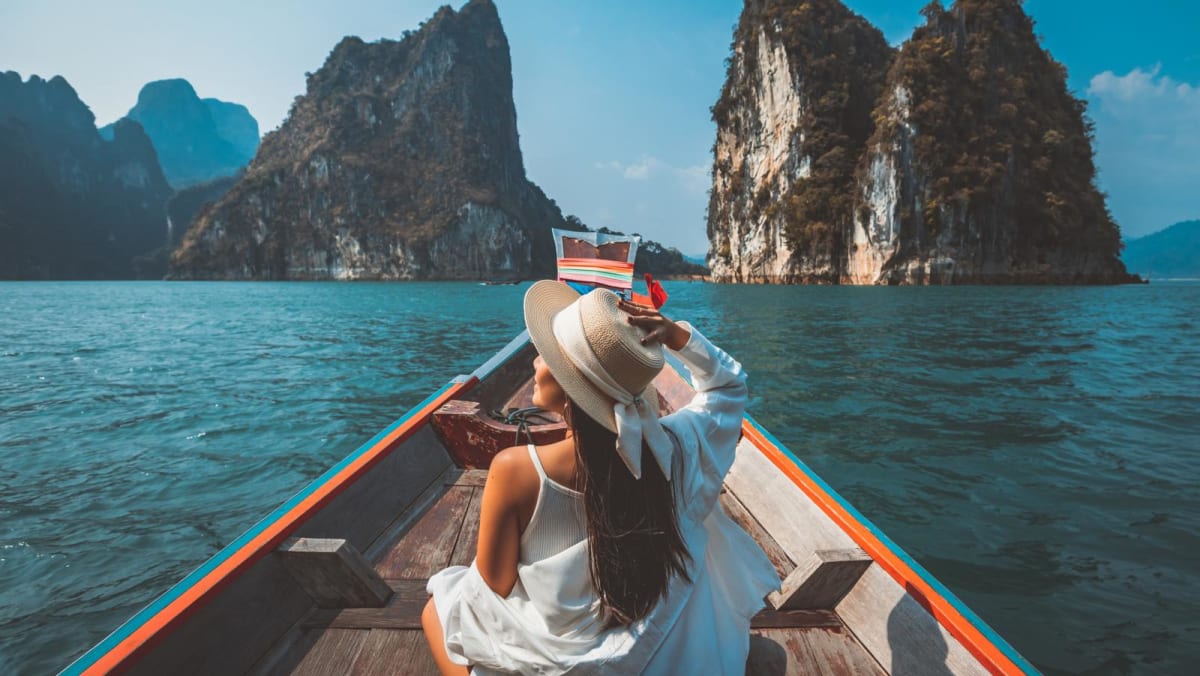A new era of luxury travel is taking shape across Asia Pacific, defined by purpose, personalisation, and profound lifestyle shifts. According to a new study from the Luxury Group by Marriott International, high-net-worth (HNW) travellers in the region are recalibrating how, where, and why they travel – prioritising wellbeing, immersive experiences, emotional value and intentional design over volume and extravagance.
The new report surveyed 1,750 of Asia Pacific’s most affluent travellers across Australia, Singapore, India, Indonesia, South Korea, Japan and Thailand, revealing a luxury travel mindset marked by deeper cultural engagement, increased precision in itinerary planning, and rising expectations from brands and experiences.
‘Luxury travellers are now more intentional than ever before,’ says Oriol Montal, Regional Vice President, Luxury, Asia Pacific excluding China, Marriott International. ‘They are seeking journeys that align with their values, enhance well-being, and deliver deep personal meaning. For Marriott International, this represents an opportunity to evolve luxury hospitality into something more transformational, curated and emotionally resonant.’
Wellness Takes Centre Stage
Wellbeing has become a cornerstone of luxury travel. In 2025, 90% of travellers cite wellness experiences as a key factor in their booking decisions, up from 80% the year prior. Beyond traditional spa retreats, luxury travellers are embracing holistic wellness experiences – from forest immersions and nutrition programs to sound healing and sleep therapies. Asia is the top destination for wellness journeys (67%), where 26% of travellers are planning a dedicated wellness or spa retreat.
Spending More, Expecting More
Luxury travellers are approaching their journeys with both confidence and discernment, as 72% plan to increase their spending on high-end travel in the coming year. This growth is led by travellers in Australia (85%), Indonesia (81%) and Singapore (80%), who are showing the strongest intent to invest more in premium experiences. Among all travel types, family travel stands out as the top priority for spending, with 47% of affluent travellers most willing to splurge when journeying with their immediate families.
Brand trust is also on the rise – recognised luxury hotel brands now rank higher than independent villas or private retreats, reflecting a desire for consistency, curated experiences, and elevated service.
A Return to Familiarity – Plus a New Luxury Trail
A striking 93% of high-net-worth travellers in the region prefer to return to destinations they already love, with 89% saying they are more likely to revisit places where they feel a meaningful connection. These are not just repeat trips – they’re purposeful returns, often planned to delve deeper into a destination, reconnect with local communities, or relive special moments with family and friends.
At the same time, while many HNW travellers continue to favour familiar destinations, new markets with convenient regional access are rapidly gaining traction: Bangladesh (26%), New Zealand (24%), and Cambodia (23%) are emerging as top choices for 2025, rising alongside established travel favourites such as Australia, Japan, and Mainland China to secure spots in the year’s top 10 most planned destinations.
The Rise of the Intentional Itinerary
Today’s luxury travellers are booking fewer trips but with greater depth and deliberation. The average short stay has increased from 3 to 4 nights, and itineraries are meticulously planned, often months in advance. For longer trips, bookings are typically made 2-3 months ahead, while short trips are locked in 1-2 months in advance. 93% expect a personalised travel experience, while 62% plan every detail ahead of time.
Nature is an Emerging Travel Priority
While gastronomy remains the top driver of travel, nature-driven experiences are now an emerging pillar of luxury travel. Countryside getaways are gaining momentum, with 28% of high-net-worth travellers planning rural escapes – up from 19% last year – while 30% are booking wildlife safaris. A remarkable 92% say being close to nature is a key travel priority, reflecting a growing desire for immersive, outdoor experiences. Further, these travellers are planners at heart, with the majority booking their long trips 2 to 6 months in advance, with some booking as far as 9 to 12 months out.
Changing Travel Dynamics: Who We Travel With
HNW travellers are redefining traditional travel groups, as new dynamics emerge.
i) Guardian Trailsetters
Once a niche category, solo parents traveling with their kid(s) has grown from 15% to 24% in just a year. When travelling as a solo parent, they show a preference for enriching itineraries that offer invaluable experiences for their children, including religious events (41%), educational trips (38%) and safaris or extreme adventures (both at 35%).
ii) Impact Explorers
Gen Z travellers are gravitating toward destinations like Australia, Sri Lanka, and Thailand – choices that reflect their strong appetite for nature, culture, and adventure. Far from the leisure-seeker stereotype, this generation is driven by purposeful, active experiences: 47% prioritise being close to nature, 45% are eager to encounter wildlife and 43% are drawn to active sporting holidays. Solo travel appeals to 31% as a means of independence and self-discovery, though small group trips of fewer than five people remain their preferred way to explore.
iii) Venture Travellist
First introduced in the 2024 New Luxe Landscapes report, the Venture Travelist segment has seen significant growth in 2025. 86% of HNW travellers now say they explore business or investment opportunities while traveling – up from 69% the previous year.
Thailand Sees Growth in Bleisure Travel
For Thailand, Thai travellers are planning fewer leisure trips than the regional average, with five domestic and three international trips compared to the regional norm of six and four, respectively. However, ‘bleisure’ travel-a blend of business and leisure-is gaining traction in Thailand, with 90% of international trips and 95% of domestic trips incorporating both purposes. Extended family travel continues to rise, now accounting for 40% of trips-significantly higher than in neighbouring markets. Popular holiday types among Thai travellers include cultural and entertainment experiences (36%), countryside retreats (32%) and sabbaticals (32%), alongside regionally favoured options like short city breaks and beach getaways.
Off-the-beaten-path Destinations Rising in Appeal among Thai HNW Travelers
While domestic tourism remains strong, popular international destinations for Thai travellers include Australia, Japan, and Hong Kong, China. Looking ahead to next year, Bangladesh and Brunei are as strong contenders to break into the top five most popular choices, reflecting a growing interest in off-the-beaten-path locations among affluent Thai travellers.
Thai Luxury Travellers Expect Tailored Experiences
Thai luxury travellers, with a staggering 97%, desire every detail to be tailored to their specific needs. While 60% prefer large luxury hotels, a significant 41% enjoy planning their own trips but still anticipate a personalised touch. Dining is a top priority for these travellers. 60% consider fine dining their ideal night out, and 39% are willing to pay for a Michelin-starred experience. When it comes to making travel decisions, good reviews (57%), awards (51%) and exclusive experiences (51%) are the most influential factors.
Health and Sustainability: Non-Negotiable Priorities for Thai Luxury Travelers
For Thai travellers, health and sustainability are non-negotiable. They expect a diverse range of dining options (98%), comprehensive wellness offerings (97%) and environmentally responsible practices in luxury hotels (97%). Swimming pools and sleep programs are viewed as the most valuable amenities (96%), and 62% are likely to book a spa treatment during their trip.
Provided by SyndiGate Media Inc. (Syndigate.info).






